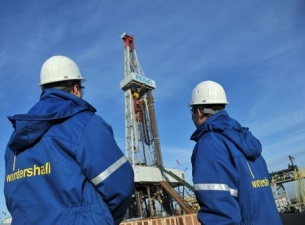"This has long been in the offing," says Mario Mehren, CEO of Wintershall. "Germany has gone completely astray on route to a green future. This can be summed up quite simply: This wouldn't have happened with natural gas." He said that flawed market incentives have instead perverted the idea of the energy transition. "Today Germany is exporting significant amounts of coal to neighboring countries ‒ even at negative prices. This is grotesque in terms of climate policy," writes Mehren in a guest article for the Frankfurter Allgemeine Zeitung (Friday edition, 16 February).
“Although Germany has invested heavily in the expansion of renewable energies in recent years, the climate protection successes are less than hoped for. Since 2009, CO2 emissions in Germany have remained almost unchanged at around 750 million tons per year. "We’re seeing an energy transition that costs a lot, but unfortunately brings little," says Mehren. That's because politicians are focusing heavily on the electricity sector and neglecting the huge savings potential in the heating market and for mobility and transport. Another reason: The focus has been wrongly placed even within the electricity market. For example, following the nuclear phase-out Germany has to a large extent replaced nuclear power with coal power. "This absurdity has reached such proportions that Germany is exporting coal-fired power as surplus production," criticizes Mehren. According to a report from ERA Energy Research, Germany's annual export surpluses have increased almost ninefold since 2011 to 54 terrawatt hours. That is, according to ERA, as much electricity as is generated by the five largest German nuclear power plants together.
In recent years, Germany has generated about 40 percent of its electricity from coal. By contrast, natural gas power plants, which are significantly more decentralized and flexible, have a share of just over 10 percent. Lignite produces three times as much CO2 when combusted than natural gas, which is the most climate-friendly fossil energy source.
"Such a climate policy doesn't make any sense. The basic idea of the energy transition was originally another, namely to replace nuclear and coal with renewables and natural gas," writes Mehren in the FAZ article. Here, natural gas would always provide flexible energy whenever the wind and sun fail to supply sufficient power. "But flawed market incentives have ensured that investments in modern gas-fired power plants have been delayed and that the climate targets have been pushed into the distant future. We should therefore urgently return to the original idea behind the energy transition and utilize natural gas for climate protection – and this should be done in equal measures for electricity, heating and mobility. Here Germany must play all its trump cards," writes Mehren.
In order to secure the supply of natural gas, Germany and the EU require not only their own production but also reliable energy partnerships. From the perspective of the Wintershall CEO, Norway and Russia in particular play a key role here. "Politically, however, we are now experiencing frosty times between the EU and Russia. A thaw is hardly in sight. This makes it all the more important to keep sight of what we have and still need, despite the ice age."
Here Mehren refers to the cooperation with the Russian gas company Gazprom, which was founded 25 years ago – on 17 February 1993 – as a public limited company. "Such a major anniversary provides a good opportunity to look back and acknowledge what we have achieved," emphasizes Mehren. "Gazprom has always been a reliable energy partner to us Europeans, even if silence or even hostility have sometimes prevailed at the political level."
Without Gazprom and other Russian companies Germany will not have a secure energy supply, underlines Mehren. "And that's nothing negative in my view. On the contrary, we should be happy about it. After all, the much cited dependence is mutual: the EU needs energy, Russia needs sales revenue. Such reciprocity, mutual obligations and interests provide the basis for a reliable cooperation, for a genuine partnership."
Based on its own experience, hardly anyone knows more about how this partnership works and how important it is than Wintershall, explains Mehren. "We've been working closely together since Gazprom came into existence. For decades we've shown how cooperation succeeds – whether in terms of the production in Siberia or the transportation to Europe."
Mehren is convinced that good economic cooperation can help bring Russia and the West closer together politically. "But above all," Mehren says, "we need this partnership if we want to plan our energy supply sensibly and achieve our climate goals. Because the winning formula is: Renewables plus natural gas. We need natural gas. And for that we also need to gain the commitment of the world's largest gas producers for the future – in Norway and in Russia."
22 Февраля 2026 | воскресенье | 21:23


